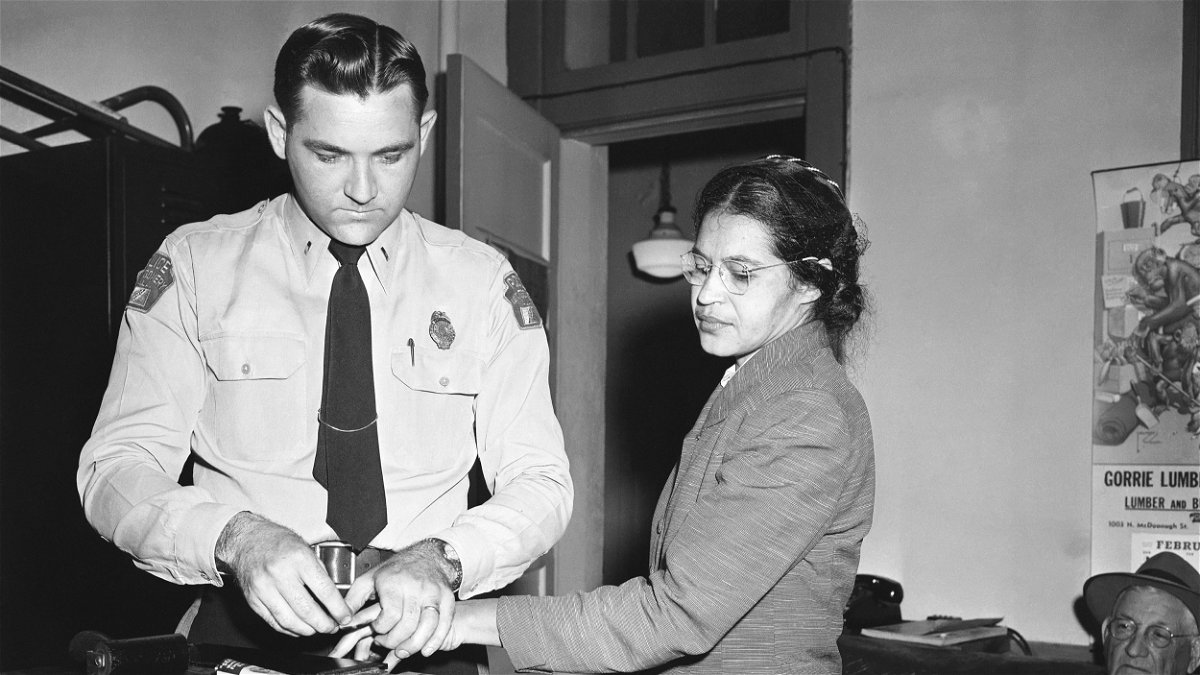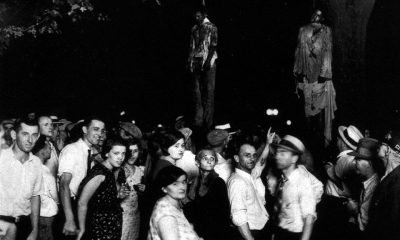United States
Florida’s Revised Weekly Lesson Texts On Rosa Parks Omit Her Race, Revealing Confusion Around Florida Law.

Studies Weekly’s reworking of a lesson plan for Florida schools has generated a heated dispute regarding the state’s educational practices and handling of sensitive historical themes. The absence of race as the cause of Rosa Parks’s 1955 bus disobedience in Alabama is the debate. Parks was forced to move seats due to her race in compliance with Florida’s House Bill 7, which restricts discussions of race in educational materials.
After the public outrage, Studies Weekly blamed the changes on quality assurance failures and misinterpreting statutory requirements. The publisher pledged to fix the error and maintain historical authenticity. However, this decision has started a discourse regarding educational publishers’ struggles to comply with Florida’s strict standards.
Stephana Ferrell, an activist and mom, said the state’s strict restrictions hurt integrating varied perspectives and historical realities in school. Ferrell decried what she saw as an assault on underprivileged populations and underlined the need for critical thinking and various viewpoints in education.
Florida public schools have been embroiled in a race-related teaching debate. DeSantis rejected math textbooks with Critical Race Theory (CRT) and other banned topics last year. Governor Ron DeSantis declined an Advanced Placement (AP) course in African American Studies, citing “queer theory” and jail abolition groups.
African-American history classes have historically been underfunded, according to state education critics. The continuing arguments highlight the difficulty of balancing educational conformity with the need to teach history thoroughly.
Revised Texts On Rosa Parks Omit Her Race: Educational Material Racism Erasure Controversy
Deleting essential racial context in instructional materials has sparked a heated discussion in Florida. Studies Weekly’s choice to exclude racism from Rosa Parks’ brave disobedience has sparked debate over racial inclusiveness in the state’s curriculum. This controversial change raises questions about how it will affect our knowledge of previous efforts against institutional racism.
Florida Education’s Racial Representation Struggle
Critics say the new instructional material change is another sign of Florida’s ongoing race equality battle. Omitting important facts about racism diminishes historical individuals like Rosa Parks and maintains a skewed narrative that ignores systemic racism. This action has raised questions about its effects on race dynamics and the state’s schools’ inclusive and varied learning environments.
Black History Teaching Challenges Due To Legislation
The current dispute highlights the difficulties educators and publishers confront in balancing regulatory requirements with authentic Black historical depictions. Florida’s strict rules, including banning textbooks and courses on racial oppression and Critical Race Theory (CRT), limit race and Black history conversations. This has led to a critical evaluation of the state’s educational goals and the necessity for a more comprehensive approach to teaching Black history that confronts racism and enables pupils to comprehend the nation’s complicated past.
Read Also: Politically Motivated Jacksonville White Supremacist Assault On Black History Illiteracy
Impact On Education’s Cultural Understanding And Empathy
Recently changed training materials about erasing racism have generated concerns about their influence on cultural awareness and empathy in Florida’s schools. Leaving out essential parts of racial history prevents students from comprehending the issues faced by communities impacted by institutional racism. The absence of extensive conversations on the subject hinders students’ understanding of past injustices and their capacity to develop empathy and solidarity with underprivileged people. Education should promote inclusion and compassion, equipping students to become knowledgeable and sympathetic global citizens.
Advocate For Inclusive Education And Diverse Narratives
The continuing discussion about erasing racism in education has sparked support for varied narratives and a more inclusive approach in Florida. More activists, educators, and concerned community members demand a curriculum authentically portrays disadvantaged populations’ contributions and problems, notably the Black community. They believe a broad education that includes many viewpoints and histories is necessary for a more inclusive and fair society. This campaign highlights the need to recognize the different perspectives and experiences that have influenced the nation’s history and build an educational climate that encourages understanding, tolerance, and unity among all students.
Balancing Legislation And History
Educators and publishers must balance statutory regulations with historical authenticity and integrity as educational policies and laws change. The Florida legislature’s ban on teaching racial history and Critical Race Theory (CRT) has challenged curriculum planners. The balance between regulatory requirements and teaching kids about the nation’s complicated racial past is a challenge. Policymakers, educators, and communities must work together to create a curriculum that meets legal standards and promotes historical truth and diversity. Maintaining education integrity and historical awareness is essential for raising educated and socially concerned children.
Critiquing History And Promoting Critical Thinking
Florida students need to correct historical misunderstandings and develop critical thinking skills after the modification of educational content disputes. Teachers may help pupils grasp the nation’s complicated history by identifying systematic racism and its effects on historical events. Encourage critical thinking to help students evaluate historical narratives and get a deeper understanding of oppressed populations’ experiences. Educators may help students solve complicated social challenges and create a more fair and equitable future by encouraging open debate and critical investigation.
Building Diverse Voices-friendly Learning Environments
As the discussion over erasing racism in educational materials continues, Florida’s schools require inclusive learning settings that promote various views and experiences. Education is crucial to building a safe and inclusive environment where all students feel respected and represented. Understanding Black history and the fight against racial injustice will help educators create a welcoming classroom for all kids. Students learning to appreciate the complex tapestry of cultural experiences develop mutual tolerance and understanding, creating a more inclusive and peaceful society.
Community Engagement Shapes Educational Discourse
The current discussion around erasing racism in education shows how vital community participation is in molding educational discourse and creating a more inclusive learning environment in Florida. Community members, activists, and parents help promote a more authentic representation of historical events, especially racial conflicts and underprivileged populations. Community people may influence educational policies, highlighting different narratives and a more nuanced view of history by actively interacting with academic stakeholders and legislators. Communities and schools can collaborate to create a more inclusive and equitable education system that equips children to be knowledgeable and empathic global citizens.

-

 States2 weeks ago
States2 weeks agoPearlie Golden 93-Year-Old Black Woman Shot By Texas Cop
-

 States2 weeks ago
States2 weeks agoLayers Of Racial Tension The Mario Woods Tragedy And San Francisco Path To Justice
-

 States2 weeks ago
States2 weeks agoLynching Of Thomas Shipp Tragedy Of Racism Echoes Through History
-

 States2 weeks ago
States2 weeks agoTragedy Unveils Racial Tensions Tarika Wilson Story
-

 States2 weeks ago
States2 weeks agoThe Killing Of Terence Crutcher And The Fight For Racial Justice

















You must be logged in to post a comment Login